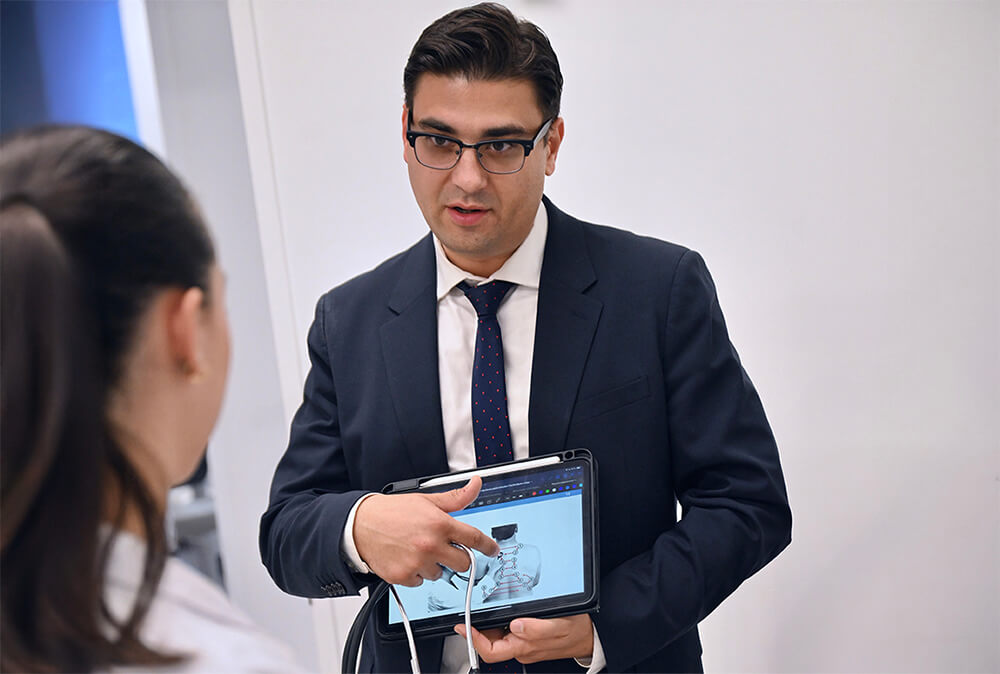The Pharmacist Will See You Now
Assistant Professor Treats Patients With More Than Just Prescriptions

Roman Fazylov is not your ordinary pharmacist. He has a clinical practice site at Wyckoff Heights Medical Center and Kingsbrook Jewish Medical Center in Brooklyn, where he sees up to 10 patients a day by appointment.
There, he conducts physical exams; orders tests, scans and lab work; determines what medications should be started or stopped; and—as needed—writes prescriptions for higher and lower doses and new medications. He also supervises pharmacy residents and students on rotation.
His wide-ranging responsibilities are evidence of a significant evolution taking place in the profession. “Pharmacy has been around since ancient times,” says Fazylov, 34. “But the most dramatic changes to the field have happened only in the last 30 years.”
Among those seismic changes, Fazylov points to a “collaborative drug therapy management agreement” he has with doctors at Kingsbrook and Wyckoff. “That means the doctors refer their patients to me,” says Fazylov. “The agreement provides me with the privilege of taking care of their patients. My role is to help patients understand their care and to know I’m there to make sure what they need gets done.”
An assistant professor at Touro College of Pharmacy, Fazylov feels fortunate to be a part of a school that “is on the cutting edge” in the field.
“Collaborative Drug Therapy”—A Current Trend
“It’s a trend now, with quite a few pharmacists having these privileges nationally,” says Fazylov, who sees his patients monthly and treats patients with conditions from diabetes to high blood pressure to chronic heart diseases.
“It’s been driven by the expertise of the pharmacists and their broad knowledge of disease states, in addition to being the experts in prescribing drug therapy,” he explains.
Dr. Fazylov’s career began 12 years ago with a post-graduate residency at Kingsbrook, where he is now the clinical pharmacist-ambulatory care specialist. In addition, he practices at Wyckoff three days a week. He created and runs their medical center’s pharmacy clinic, while serving as assistant professor at TCOP teaching students therapeutics.
Fazylov’s professional “North Star” is TCOP Dean Dr. Henry Cohen, a former professor who steered him to the clinical side of pharmacy. “Dean Cohen inspired me and still inspires me all these years later,” Fazylov says. “He’s always ahead of the curve, and that’s how he leads the pharmacy school.”
On a recent day, one of Fazylov’s patients brought in close to a dozen medications for him to decipher. “I took her off of several of her medications and replaced them with ones that do not have potentially serious side effects,” he explains. “They were making her confused and unstable and dizzy, which is dangerous due to her increased chances of falling.”
All in a day’s work for a pharmacist who loves each day’s work.

